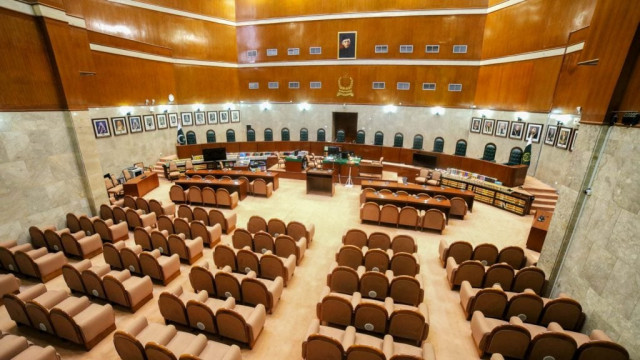Explainer: How many seats each party will get in chief justice appointment committee
Under new amendment, political parties will get one committee seat for every 39 NA members and 21 Senate members

Following the approval of Pakistan’s 26th Constitutional Amendment, a new process for appointing the Chief Justice of Pakistan has been finalised, introducing a special parliamentary committee with proportional representation from political parties.
Under the amendment, a formula has been established where every 39 members of the National Assembly will allow a political party one seat in the committee, while in the Senate, each party will gain a seat for every 21 members. This ensures balanced representation in the decision-making process.
The Pakistan Muslim League-Nawaz (PML-N) is expected to secure four seats, three from the National Assembly and one from the Senate. The Pakistan Peoples Party (PPP) is likely to receive three seats, two from the National Assembly and one from the Senate.
Other parties, including Pakistan Tehreek-e-Insaf (PTI), Sunni Ittehad Council, Muttahida Qaumi Movement (MQM), and Jamiat Ulema-e-Islam-Fazl (JUI-F), will also be represented.
According to the new law, the Chief Justice of Pakistan will no longer be chosen automatically based on seniority. Instead, the Chief Justice will be selected from a panel of three senior judges, with a 12-member parliamentary committee requiring a two-thirds majority to finalise the appointment.
The committee, formed under Article 175A, subsections 3A(1) and 3A(2) of the Constitution, will include representatives from the National Assembly, Senate, the Bar Council, and other judicial bodies.
Once a candidate is selected, their name will be forwarded to the Prime Minister, who will submit it to the President for final approval.
"This amendment aims to enhance transparency and ensure wider representation in the judicial appointment process," said a government official involved in the reform.
Additionally, the amendment ensures that no court or tribunal can challenge the advice sent to the President by the Prime Minister or Cabinet regarding the Chief Justice’s appointment.
The new law also impacts the selection of Supreme Court judges, with the Judicial Commission now including parliament members to oversee the process.
The committee is expected to be fully formed in the coming days, with the first meeting scheduled soon.
Earlier in the day, National Assembly Speaker Sardar Ayaz Sadiq sent a formal request to the Chairman of the Senate Syed Yousuf Raza Gillani. The letter, referencing Article 175A of the Constitution, calls for the formation of a special parliamentary committee tasked with the selection.
The speaker has requested the names of Senate members for the committee, and has reached out to parliamentary leaders from the Pakistan Muslim League-Nawaz (PML-N), Pakistan Peoples Party (PPP), Sunni Ittehad Council, and Muttahida Qaumi Movement (MQM) for their submissions. These names are expected by the end of the day.
The chairman of the Senate has also contacted parliamentary leaders to provide nominations for the committee.
The speaker aims to issue the notification for the special parliamentary committee by today, with the first meeting expected to take place tomorrow. The Ministry of Law will contact the Chief Justice to receive the panel of senior judges.
PPP has already suggested names, including Raja Pervaiz Ashraf, Naveed Qamar, and Farooq H. Naek, while Jamiat Ulema-e-Islam (JUI-F) is expected to nominate Senator Kamran Murtaza for the committee.



















COMMENTS
Comments are moderated and generally will be posted if they are on-topic and not abusive.
For more information, please see our Comments FAQ